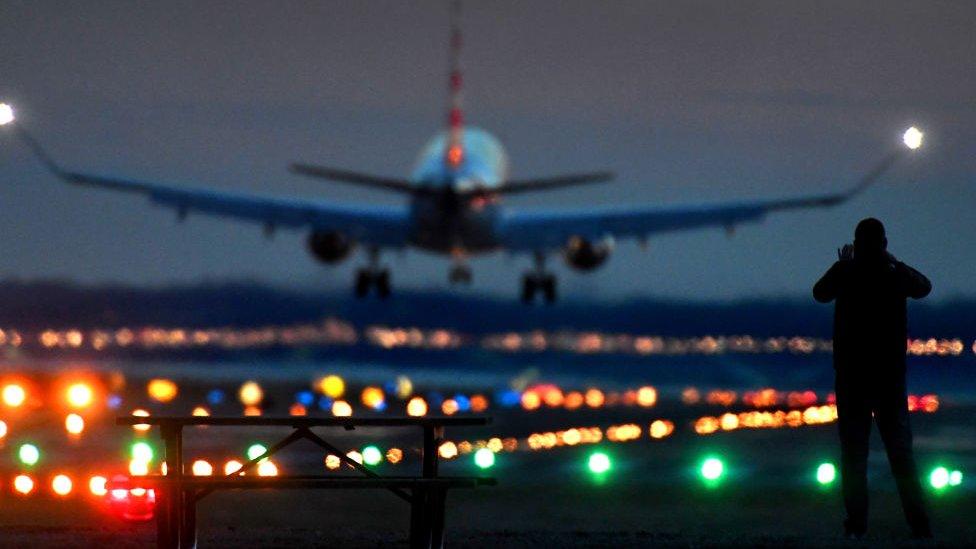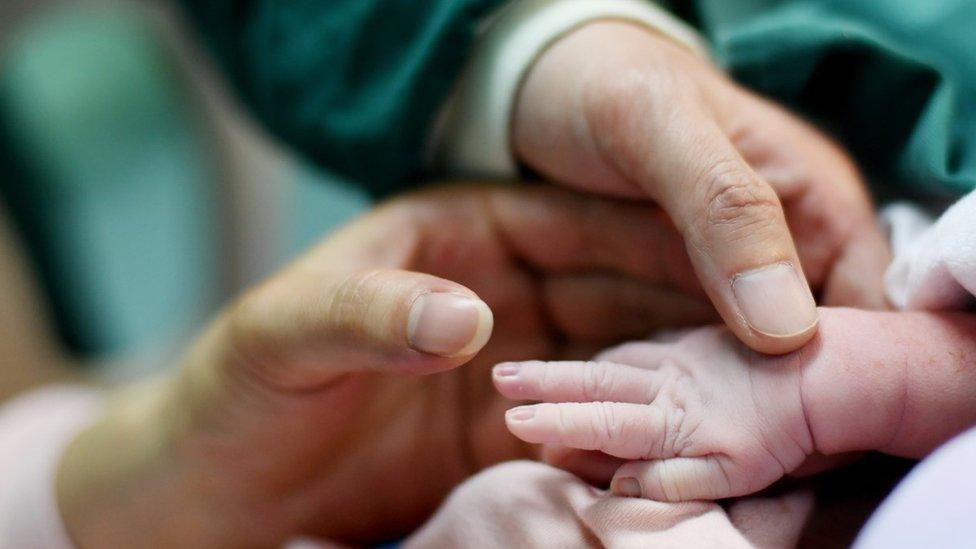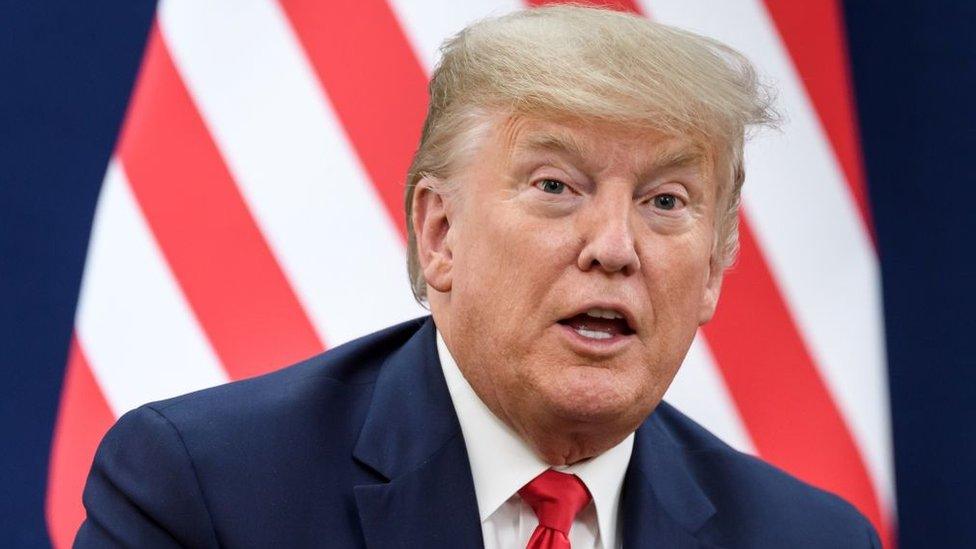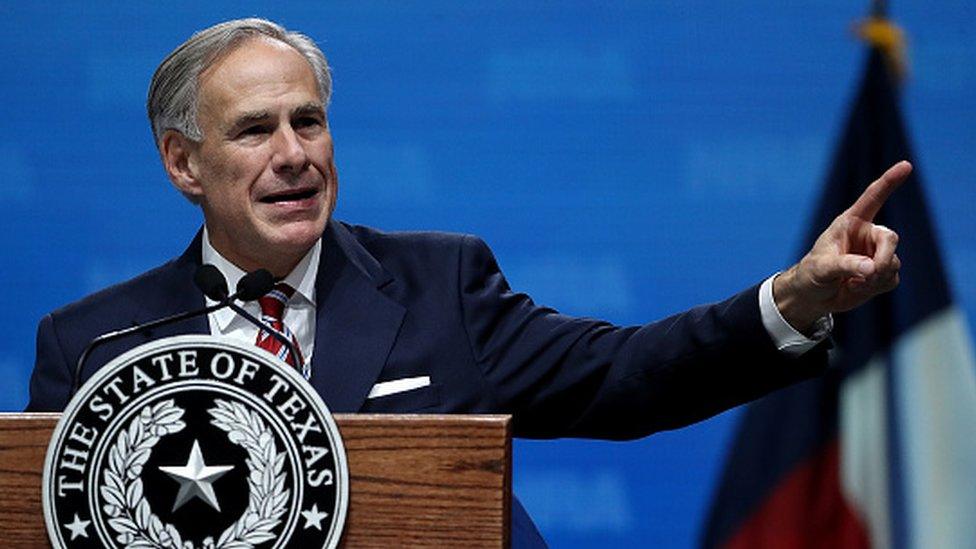'Birth tourism': US steps up scrutiny of pregnant visa applicants
- Published

The US Department of State has unveiled new rules to deter pregnant women from travelling to the US to give birth.
The policy takes effect on Friday and is intended as a crackdown on what is known as "birth tourism".
Under the rule, pregnant women applying for US visitor visas may need to prove they have a specific reason for travel other than giving birth on US soil.
Nearly all children born in the US gets automatic citizenship - a law US President Donald Trump has criticised.
His administration says the new travel policy is necessary to safeguard US national security and public health.
Mr Trump has sought to limit immigration to the US, and has previously questioned the US constitutional amendment that grants citizenship to "all persons born or naturalised in the United States".
Conservatives have long decried so-called anchor babies, born in the US to parents who are seeking to live in America.
The practice of obtaining a visa to the US on the basis of having other US relatives is known as "chain migration, or family reunification", a policy that has also been criticised by Mr Trump.
What is the new rule?
The new rule applies to visitors seeking B visas, which are issued to non-immigrants.
It allows consular officials to deny a visa to any individual whose "primary purpose" in obtaining such documentation is to give birth there.
"The final rule addresses concerns about the attendant risks of this activity to national security and law enforcement, including criminal activity associated with the birth tourism industry, as reflected in federal prosecutions of individuals and entities involved in that industry," the Department of State said.
"The birth tourism industry is also rife with criminal activity, including international criminal schemes," the policy adds.
It also tightens rules on those wishing to enter the US for medical treatment.
Visa applicants must now prove they have "the means and intent" to pay for their medical expenses, and convince a consular officer that they have arranged for a doctor willing to provide their treatment.
The White House applauded the new rule.
Children born in the US automatically qualify for citizenship, one of the reasons behind the popularity of 'maternity tourism'
The president's press secretary, Stephanie Grisham, said in a statement that "the birth tourism industry threatens to overburden valuable hospital resources and is rife with criminal activity".
"Closing this glaring immigration loophole will combat these endemic abuses and ultimately protect the United States from the national security risks created by this practice," she added.
How many children are born under 'birth tourism'?
There are no records of how many babies are born to US visitors each year, but various groups have issued estimates.
About 10,000 babies were born to a foreign resident in 2017, the latest year that data is available, according to the US Centers for Disease Control and Prevention.
That number is up from about 7,800 in 2007.
The Center for Immigration Studies, a group that advocates for stricter immigration laws, estimates that about 33,000 children were born to women on temporary tourist visas between the second half of 2016 and the first half of 2017.
Currently, pregnant women can enter the US even up until birth, according to US Customs and Border Protection.
But the prospective mother's travel may be restricted if there is reason to believe she intends to remain in the US beyond the time allowed by her visa, or plans for US taxpayers to foot the bill for her childbirth.
- Published18 September 2019

- Published4 August 2010
- Published22 January 2020

- Published11 January 2020
